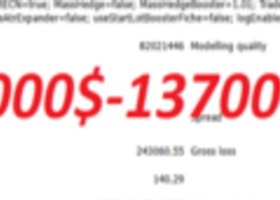Donald Trump’s stunning policy reversal on China’scurrency this week shone a light on theadministration’s contradictory views on foreignexchange, and risks expos
ing the president to apolitical backlash over abandoned campaignpromises, analysts say.
The president on Thursday backed away from hissignature vow to brand China a currencymanipulator, executing a U-turn from one of hismost attention-grabbing
campaign pledges.
It was one of a number of volte-faces this week,including a declaration that Nato is no longer “obsolete” and warmer words for Janet Yellen,the Federal Reserve chair,
that appeared to leave open
the option of reappointing her nextyear.
By ditching the China pledge, Mr Trump helped ease bilateral tensions with Beijing, but alsoinvited accusations that the president is going soft on his vows to clamp
down on perceivedunfair trade practices.
China has hailed the decision, saying it would promote “more balanced growth” in bilateraltrade. “We do not intend to spur export growth through competitive depreciation, and therenminbi has no basis for continuous depreciation,” foreign ministry spokesman
Lu Kang saidon Thursday.
As recently as February, Mr Trump labelled Beijing a “grand champion” of currencymanipulation and promised tough action, while his administration has urged the
InternationalMonetary Fund to take a tougher line with Beijing over currency.
Chuck Schumer, the top Democrat in the Senate, this week said that the opposition party wasassembling a trade package designed to get tough on China in order
to force the president’shand.
Specialists in international economics welcomed the decision, saying that it recognised thereality in foreign exchange markets, given that Beijing has been intervening
to hold up thevalue of the currency, not to drive it down.
The move leaves the door open to tough language in a forthcoming Treasury report on foreignexchange practices around the world, while defusing some of the tensions
that havesurrounded the China-US relationship.
However, in the same interview with the Wall Street Journal in which he backed away fromcalling China a currency manipulator, Mr Trump renewed his complaints
about the high value ofthe dollar, in words that will trigger concern in some overseas capitals.
His declaration that the US currency was “getting too strong” clashed with recent messagesfrom his Treasury secretary, Steven Mnuchin, who has stuck more closely
to the traditional USrhetoric in favour of a strong dollar.
If Mr Trump persists with his willingness to verbally intervene about the high dollar, he willcomplicate relations with foreign partners over the longer run, analysts said.



